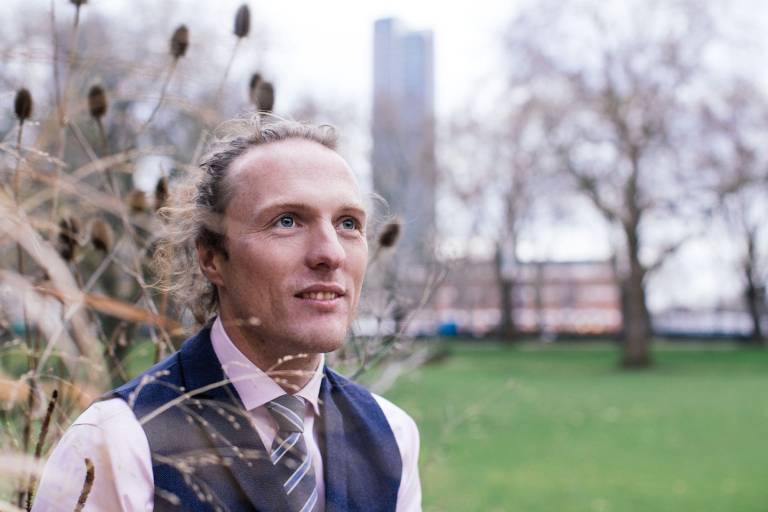Rights of Nature workshop with Paul Powlesand
08 May 2024, 11:30 am–1:30 pm

The workshop will be held in the DFSR, followed by lunch in Gordon Square.
Event Information
Open to
- All
Organiser
-
Lewis Daly
Location
-
Daryll Forde Seminar RoomUCL Anthropology14 Taviton StreetLondonWC1H 0BW
Paul Powlesland is a pioneer in upholding the Rights of Nature, a barrister and co-founder of Lawyers for Nature (LFN), a collective of lawyers, researchers, and campaigners that have come together to work on behalf of nature. He is also an environmental activist who protests and protects the natural world, and uses environmental law and regulations to defend trees, rivers, and wildlife against late capitalist extraction and ecological catastrophe.
Please come to the event having considered some of the following questions which we will discuss with Paul.
1. How might we represent ‘nature’ in organisations?
Think about an instance where a river, tree, part of land, or specific part of nature has been represented at governance level within an organisation/government body/NGO/charity. How do organisations represent and define ‘nature’? Focus on existing models around the world where nature has been brought into decision-making/governance forums and/or RoN in practice, e.g. New Zealand, Ecuador, Bolivia, India. How are they ensuring the voice of a river/tree/land is being channelled? What safeguards are in place to ensure accountability and transparency?
2. How might we transpose nature governance into UK law?
Think about how nature can be represented/brought into decision-making forums in organisations such as charities, NGOs, stewardship ownership models, and trusts. What laws/regulations/guidance are already in place which could be used to ensure good ‘nature’ governance, e.g., Charity Commission guidance on being a good governor/trustee, other regulatory bodies guidance/advice? How might we transpose frameworks which emerged from indigenous movements in places like New Zealand and Latin America to the UK context?
3. How can nature’s ‘voice’ be represented in land ownership models?
First consider land trusts and group ownership models in the UK. Then consider international land ownership models, e.g., from places like North America, Latin America, and Australasia. Is it possible to give away land/rivers/forests etc. to themselves? Are there any models in the UK or internationally where nature has property rights?
4. What might an anthropological perspective bring to these conversations around rights of nature and nature governance?
What are the roots of ‘rights of nature’ concepts in indigenous cultures and traditions across the world? How has long-term anthropological work with indigenous communities helped forward this agenda in the domain of global jurisprudence? How might anthropological critiques of colonialism help forge better frameworks for protecting nature and local people’s land rights in contexts of settler colonialism and capitalist extraction? How might we better include indigenous and marginalised voices and representatives in these conversations around RoN in national and international legal forums?
 Close
Close

